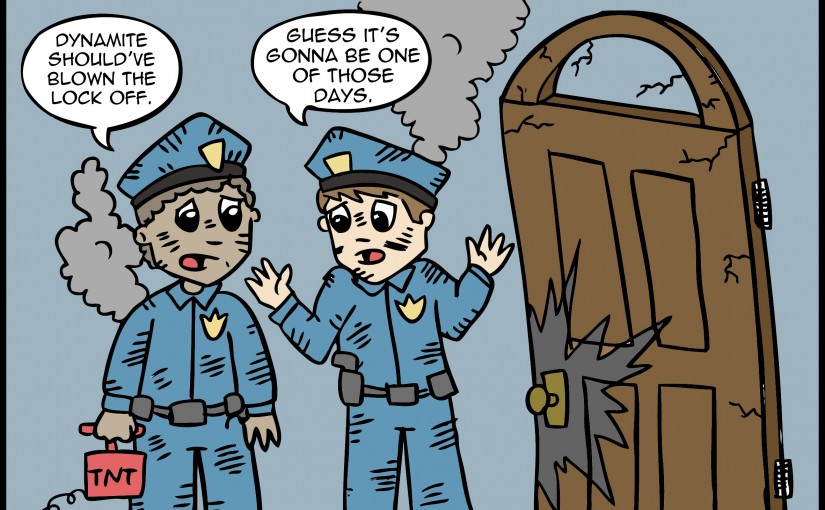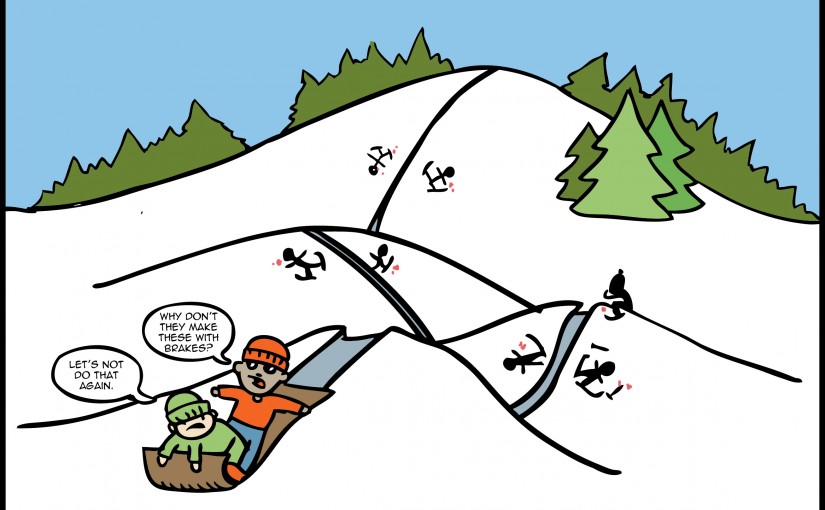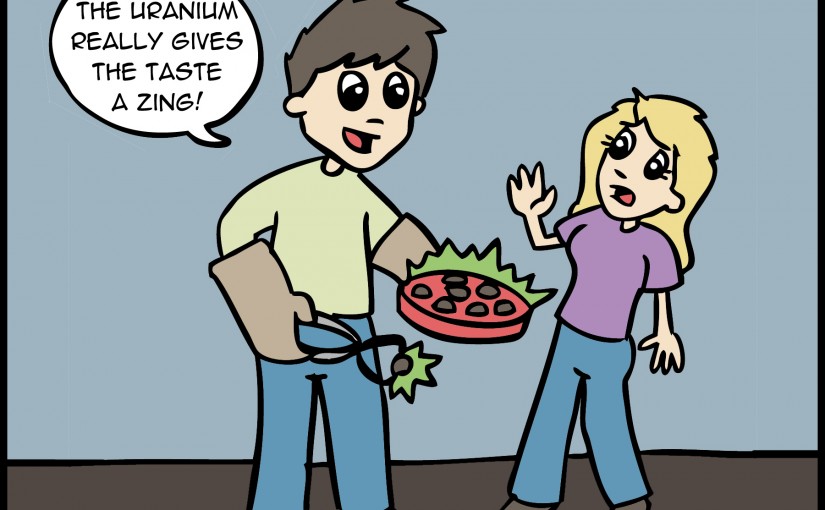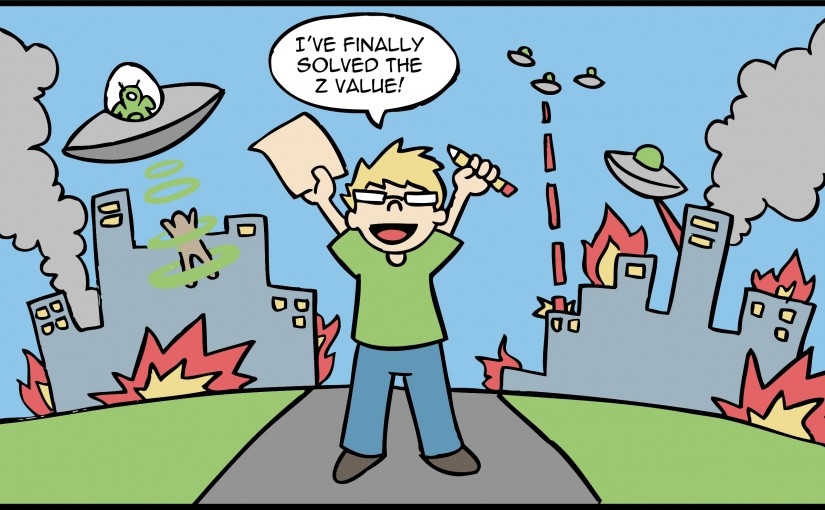Category: Work Safely & Appropriately
Research is Unpredictable
Probably the most frustrating thing about science is that it doesn’t work.
Sometimes it never works. You spend months trying to make something work and have no more success than a flying squirrel attempting to glide across the Atlantic.
Sometimes it does work. Then despite the fact that you haven’t changed anything it suddenly stops working and no matter what you do, you can’t replicate what you did before.
IT’S OK. THESE THINGS HAPPEN TO EVERYONE.
See Examples- Machines may break down for months on end, before a technician finally describes how much it will cost to buy a new machine.
- Software may freeze and you’ll have to repeat days of work redoing your analysis. Or a power cut will end your complicated procedure in the middle, causing everything to be lost.
- Volunteers may cancel their appointment for the 50th time in a row, or they may simply drop out.
- Ethics or safety boards may take months considering whether to give you approval, and then decline it.
Get Practical Tips
- Check the internet to see if other people had the same problem and what solutions they found.
- Save your work regularly. Don’t wait for your first major loss of data before you take this advice.
- Don’t assume someone else will fix or order something. Chances are they are thinking the same thing about you.
- Back up your results either using the university intranet or on several computers
Get Wet Lab Practical Tips
- If a procedure still isn’t working after a few attempts, then don’t simply continue repeating it under the assumption that you did something wrong. Make sure you consciously change one aspect.
- Don’t leave important data on shared machines. Always copy it to your own personal machines ASAP. It may crash, or other people may delete your files.
- A primary reason experiments suddenly stop working is because one of the reagents has expired. If the components are cheap it is best to make up new solutions for all of them and try again. Order new stocks if you have to and double check your calculations. If the materials are expensive, try changing one or two at a time.
- If an experiment has never worked, try new solutions but also change the parameters one at a time.
- Always be aware of the mechanical impact. There are different ways of following a protocol: It could also be that you are being too gentle with mixing solutions, or too rough with components that can be damaged such as living material.
- Never assume a rough estimate is ok. When it comes to timing and concentrations, always be as exact as possible. Sometimes this is all it takes to turn a failed experiment into a successful one.
Read Dry Lab Personal Perspective
You would think it would be easy enough to get 50 people to fill out a questionnaire. Nope. Even once I had ethics approval it was an uphill battle to get people to fill them in.
I got about half way to my target and then suddenly the influx just stopped. I couldn’t get anyone else to save my life. The avenues I’d been using were simply exhausted, so I had to find new avenues.
My advice is not to assume the methods you are using will provide an unlimited supply of people. Think of other ways to attract volunteers.
Read Wet Lab Personal Perspective
It is universally acknowledged that in wet lab some protocols are more reliable than others. Some people can get the less reliable ones to work and others can’t. I couldn’t. I made up new solutions and tried different parameters, but it never seemed to work.
I was not spending enough time researching the protocol. When I looked at a protocol, I saw a list of stages, but the good researchers understood what each of those stages did.
They had researched the protocol and reagents so they knew what changes to make for it to work, whereas I was making uneducated guesses to alter parameters. I did the experiment more times, but each time they did it they improved it more.
For complicated procedures optimisation can still be a lengthy process, but if you do it right you will get there.
You Will Make Mistakes
Equally as frustrating as the times when the laws of nature seem intent on thwarting your every move, are the times when you make stupid mistakes. The guidelines on planning and implementing research will help minimize your unnecessary mistakes, but they won’t prevent them all.
When you inevitably add enough inhibitor to make your cells shrivel up and die; add an extra bracket to a line of code that you don’t spot for two days; delete a patient’s data from the computer; or write an entire chapter on the wrong title, DO NOT DESPAIR.
Get Practical Tips- Don’t make the same mistake twice. Note the error down several times and take steps to ensure it doesn’t happen again.
- If your mistakes are because you don’t fully understand something, then learn it.
- Read these guidelines again.
Read Personal Perspective
There was one step in my cell staining protocol that I always used to forget. After washing them with various chemicals for ten minutes at a time, there was a one minute wash with water, which the first two or three times I left out despite remembering it every time just after it was too late. I highlighted it on the protocol, wrote it out several times and never forgot it again.
Check You Are Being Safe and Ethical
If you make a mistake that happens to be dangerous, then this is a tremendous source of stress, and could cause you and others potential harm.
Although these occurrences are rare, it doesn’t mean they won’t happen to you. They may not, but if they do then you will wish you thought about them beforehand.
For each experiment you should do a risk assessment and think about what the potentially hazardous outcomes are. You don’t have to write an essay on it, but really bad things with small probabilities are worth thinking about beforehand. It reduces the risk of panic, which in turn reduces the risk of unpleasantness becoming disaster.
See Wet Lab Examples- Large bottles (or small containers) of dangerous chemicals can spill or smash.
- Lasers and radiation can inflict various degrees of harm
- People or animals could be injured during experimentation
See Social Sciences and Dry Lab Info
It is a mistake to assume that because you don’t use obviously hazardous materials that this guideline does not apply to you. Safety and ethics boards may disagree with your assessment, and even if you think they’re wrong, they can cause you serious problems. Any research that involves other people requires approval.
Get Practical Tips
- If you are still not sure about something, ask. It sounds obvious, but people hate asking. You just have to do it. It isn’t rude or stupid, and if the person takes exception to your question then they are socially defective. Feel sorry for them, and ask someone else.
- Make sure you have taken all the courses necessary to meet the required safety and ethics standards. If you have somehow slipped through the gaps, this is not an achievement. You are a danger to yourself and others, and a potential liability to the university. They won’t thank you for it.
Get Wet Lab Tips
- If you’ve spilled or broken something dangerous, don’t hide it or rush to clean it up yourself. You may need to tell someone what you did and what you think the best course of action is.
- When you start working with a new chemical, look at the accompanying data sheets. Make sure you are aware of the associated hazards.
Read Personal Perspective
I already had ethical approval for my project which involved getting members of the public to fill in a questionnaire about how they viewed politics. What I didn’t realise was that I also needed ethical approval to stick up posters asking people to fill in the questionnaire. This had never struck me as unethical, but the ethics board saw potential problems and wanted me to safeguard the procedure. If I had put this in my original ethical approval I could have potentially saved the months I waited for them to get back to me.
Don’t Ignore Your Other Commitments
Scientists, more than most, have a tendency to ignore their personal lives and focus on their work. The job becomes increasingly stressful when you leave other important tasks incomplete. As they build up, things will only get worse, so do them as they come.
If your bills are piling up, and exercise has become something you hear about but don’t fully understand, then you need to take a step back. The chances are that although you are working pretty constantly, the quality of your research is suffering. The mistake at this juncture is to think you need to do more work rather than less. Take a break. You will gain a new perspective about your research and be able to return to it with a greater level of enthusiasm. Don’t burn out by exhausting yourself.
Get Practical Tips- Make time for people. Family and friends are important and will positively affect your work.
- Make a list of your obligations and cross each thing off as it gets done.
- Don’t run too many procedures at once.
- Even if you are experienced at a certain procedure, don’t just pile the replicates on top of each other without analysing the previous attempt first. Make sure you not only know the outcome of the previous attempt, but understand why any problems occurred before you do it again. Otherwise you will inevitably make the same mistakes, reducing both your productivity and morale.
Get Wet Lab Tip
- Don’t think that you have to complete each experiment every day. Know the points where you can stop and continue the next day.
Read Personal Perspective
At the beginning of my third year, I didn’t have a lot of data. I felt like I had to run procedures faster and faster in order to generate something useful. Before one had finished I was already running it again, and again. But of course this meant I kept making the same mistakes. I never took the time to analyse where the mistakes were, and the protocols kept failing.
The result was that I got increasingly stressed and piled on more replicates, becoming disheartened by their failure. My social and home life both started to suffer, and I stopped enjoying my degree.
If you are stressed by your lack of progress, don’t just pile on more work mindlessly. It’s inefficient, and will only make things worse.



